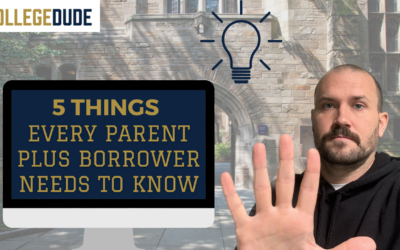For divorced parents who have college-bound children, figuring out how to pay for college can be a task. However, there are financial aid options available to divorced parents and their children to help make college more affordable. In this post, you will learn the financial aid options for divorced parents and college-bound children.
FAFSA for Divorced Parents
Completing the Free Application for Federal Student Aid (FAFSA) is the starting point for any student seeking financial aid for college. For divorced parents, the FAFSA can be a bit complicated. The FAFSA requires information about the student’s and the parent’s income and assets, and this can be challenging for divorced parents who may have joint or separate finances.
If the parents are divorced and living separately, only the parent with whom the student lives for the majority of the year is required to provide their income and asset information on the FAFSA. However, if the student spends an equal amount of time with both parents, then the parent who provides the most financial support is required to fill out the FAFSA.
Divorced parents should work together to ensure that the FAFSA is completed accurately and on time. It’s important to communicate about who will provide financial information on the FAFSA and to provide the necessary documentation to support the information provided.
CSS Profile for Divorced Parents
The CSS Profile is an additional financial aid application that colleges and universities who use the institutional methodology require for students seeking financial aid. For divorced parents, completing the CSS Profile is more complicated than the FAFSA. It requires information from both parents, regardless of who the student lives with.
Much like the FAFSA, you need to communicate with your ex-spouse about who will complete the CSS Profile. Both parents are required to provide their financial information, so it’s important to determine who will be responsible for completing each section. It’s also important to gather all necessary financial documents before starting the application to ensure a smooth and timely process.
Second, it’s important to be thorough and accurate when filling out the CSS Profile. The CSS Profile asks for more detailed financial information than the FAFSA, so be sure to read each question carefully and provide all required documentation. Double-check all numbers and calculations to ensure accuracy and prevent delays in the financial aid process. Remember, the CSS Profile is used to determine eligibility for institutional aid, which can be a significant portion of a student’s financial aid package. Taking the time to complete the application accurately can result in a more favorable financial aid award.
Types of Financial Aid for Divorced Parents
Once the FAFSA is completed, the student will receive a financial aid award letter from their school. This letter will outline the types and amounts of financial aid the student is eligible to receive. There are several types of financial aid available to college-bound students, including grants, scholarships, work-study, and student loans.
For students with Direct Loans, there should be some loans in the student’s name only. This is an ideal place to start. However, some families will realize there is a remaining gap to cover the college cost. In this case, private loans, or Direct PLUS loans are an option. That said, these loans either require a co-signor, or are in the parent’s name solely. This can create problems with the two divorced parents and a decision of who will cover the cost.
Tips for Divorced Parents and Financial Aid
It’s important to communicate with your ex-spouse about the financial responsibilities of paying for college. Divorced parents may need to split the cost of college or contribute to college expenses in other ways. Having a clear understanding of each parent’s financial responsibilities can help prevent disagreements down the road.
It’s important to research financial aid options that may be available to your child. Many colleges and universities offer scholarships and grants specifically for students from divorced families. You should be considering private scholarships, tax credits, and other options available. It is a good idea to educate yourself on the process, but also feel free to reach out if you need help navigating the financial aid process.






